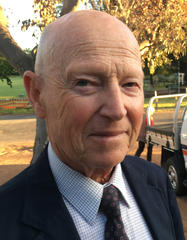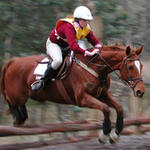2016 Armistice Day address by Research Historian Allen Mawer at the Hall Memorial Grove
11 November 2016

This Remembrance Day falls in the centenary of the bloodiest year on the Western Front, the year of Verdun and the Somme, and for Australia the year of Pozieres and Fromelles. Some European villages lost all their men of military age as a consequence of encouraging them to serve together in the same unit. Some families lost fathers and sons within twelve months. The losses in 1916 decimated a generation. The human cost was measured not merely in battlefield casualties and the broken bodies and minds that came home but in the women for whom our 60,000 dead were that many fewer opportunities to marry and have a family. It was the era of the maiden aunt. In my family we had two: Lyn and 'Rene were sisters, became nurses, and lived together but alone for their entire lives.
The consequences of war were unlikely to be forgotten by those who had experienced them, but there was also a near-universal determination that this particular lesson of history should never be repeated. And so since 1919 November 11 has been a day of reflection. The eleven o'clock silence was an invitation, indeed a challenge, to recall the pain and resolve that inasmuch as it lay within your ability to influence events, nothing like the Great War should ever happen again. Here in Hall, the sentiment was best expressed by the teacher, Charles Thompson, who said at the dedication of the Peace Tree that he hoped when disputes arose between villagers they would meet under the tree and resolve their differences amicably. On a global scale, this was the moving spirit behind the League of Nations, dedicated to the peaceful resolution of disputes between nations, with the assurance of collective action to prevent the strong from abusing their power over the weak. The paradox, of course, was that the strong could ultimately only be deterred by the threat of greater force, which became increasingly problematical as the guarantor great powers withdrew and/or disarmed. The point was not lost on the RSL. In 1923 it adopted as its motto 'The price of liberty is eternal vigilance'.
The hopes of 1919 became the ashes of 1939 and that altered the significance of Remembrance Day for the generation of the Second World War. They saw it, like Anzac Day, as honouring the sacrifice of their predecessors. Observance became a matter of respect, not rededication. After all, they said, only a supreme optimist could believe that a fervent desire for peace was any insurance against war. And yet that was the very notion embraced by their children in the 1960s, who rejected what they saw as the claptrap patriotism of the veterans. It did not help that the very language of remembrance had become denatured: 'lest we forget', a powerful imperial phrase from Rudyard Kipling's Recessional of 1887, had become a ritual utterance. 'Forget what', the generation of the 1960s mocked. Martin Sharp produced a brilliant cartoon depicting old men parading on Anzac Day. The caption read 'Best we forget'.
It is the more remarkable then, that the millennials have rediscovered Gallipoli and the Western Front for themselves. In part these are to-do stops on a backpacking itinerary, but the respect – even reverence – these young people display is impressive. When you see a ten-year-old girl at an Anzac Day ceremony with tears rolling down her cheeks while recounting the sacrifice made by a man who died a century ago it is hard not to believe that the terrible lesson her great grandparents hoped would be handed down still resonates with the young.
We here have been blessed. For Australia the wars of the last 70 years have been optional, not existential. It is human nature to take good fortune for granted but our presence here testifies that we know it was not a gift. It was earned by men who gave up their tomorrows for our todays, and we are here to honour their sacrifice with gratitude and pride. Our pride is in their achievements but they would be the first to tell us to lighten up. My grandfather used to sing a song. Heaven knows what the tune was – you would never have been able to pick it up from him – but the words stuck.
We are the ragtime army, the A -N -Z-A -C,
We cannot shoot, we won't salute, what earthly use are we?
And when we get to Berlin, the Kaiser he will say,
Hoch, hoch mein Gott, what a jolly rotten lot, to earn six bob a day.
That defined the ANZACs for me – rotten soldiers, mighty warriors. But the best honour we can do them is to remember what a scourge war is and to rededicate ourselves to its elimination, as the generation of 1919 tried to do. They failed, and even the price of their failure – WW2 ̶ would be as nothing compared to the price nuclear war would exact. 'Lest we forget' is an implicit threat, and the potential consequences of ignoring that threat are today greater than at any other time in history. Forgetting would be folly.
Allen Mawer
11 November 2016

